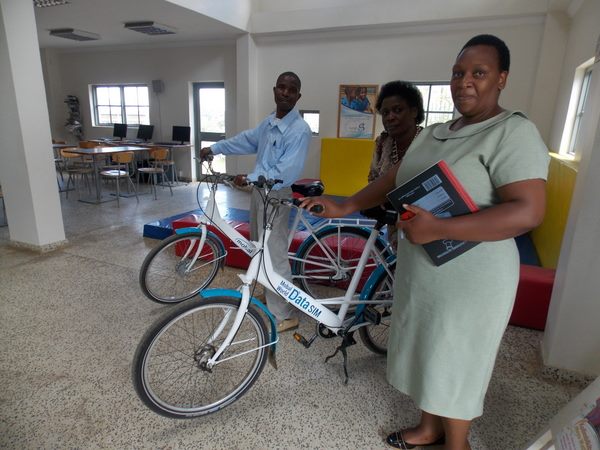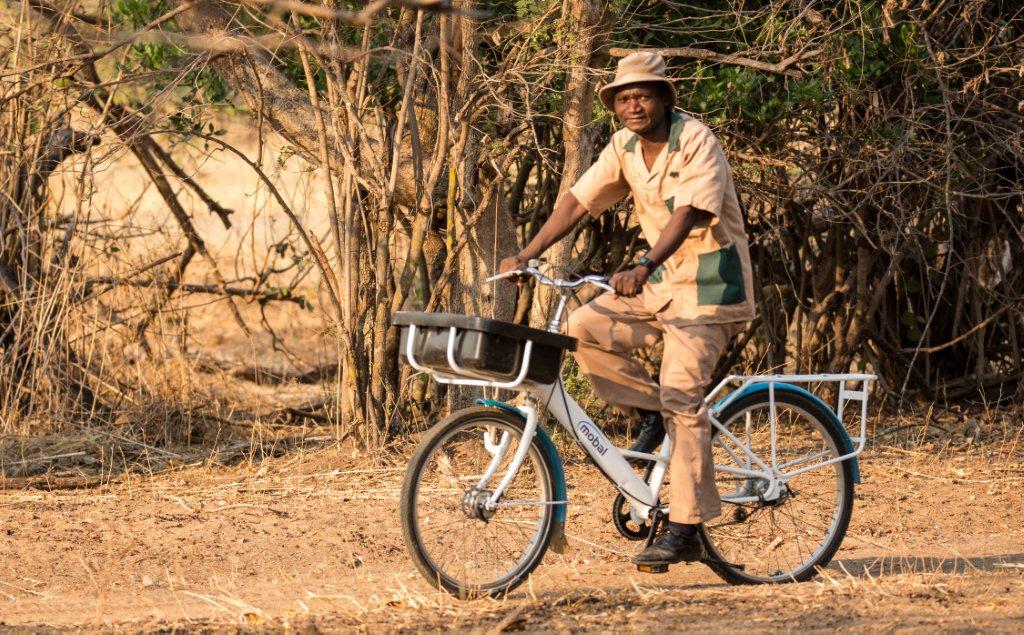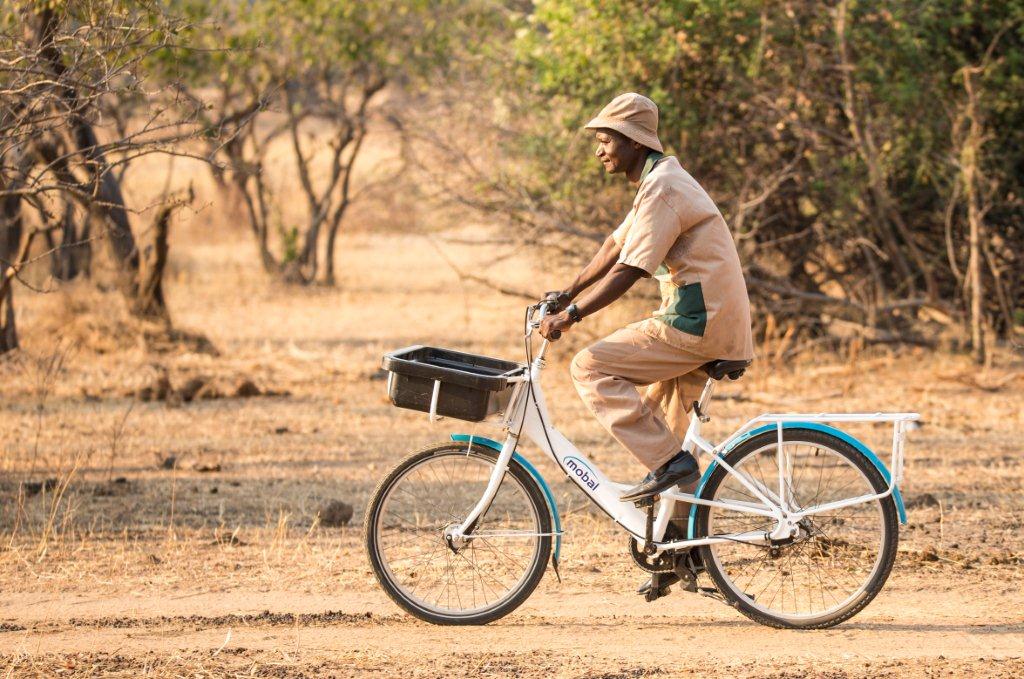There is a glimmer of hope for the black rhinoceros, rated as critically endangered by the International Union for Conservation of Nature, through the successful breeding programme in a Malawian conservation park supported by Mobal. The game wardens’ efforts to look after the rhinos have been constantly frustrated by wandering elephants who damage the enclosure giving access to poachers who sell rhino horns in the Far East. With the aid of Mobal’s donated bicycles, the grateful wardens are now able to patrol and fix the special enclosure in Liwonde National Park giving the rhinos a fighting chance of surviving for future generations.
Mobal has been supporting orphan children’s care and numerous development enterprises in the small African country of Malawi since 2007. One charity initiative has involved shipping obsolete Royal Mail postman’s bikes from the UK, which are then fixed and sold to make cash for children’s education.
Mobal Chairman, Tony Smith, told us how our involvement started after his recent visit there.
“The first bikes we provided to the Game Park were still in their bright, red, original Royal Mail colours, but the game wardens reported that as soon as the elephants saw the red bikes, they would charge after them. Fortunately, we have been able to respray the bikes in Mobal’s colours, so the elephants and the wardens are all happy. We are delighted to have been able to help Liwonde Game Park in their work to save the African Black Rhino.”
Although the rhinoceros is referred to as black, its colors vary from brown to grey. There has been so much poaching of this species that western black rhinoceros, a sub-species, was declared extinct by the IUCN in 2011. Numbers of remaining black rhino are critically low but thanks to successful conservation and anti-poaching efforts like this, the total number of black rhinos globally has risen in recent years to about 4,838.
Thanks for helping Mobal to protect endangered animals.





